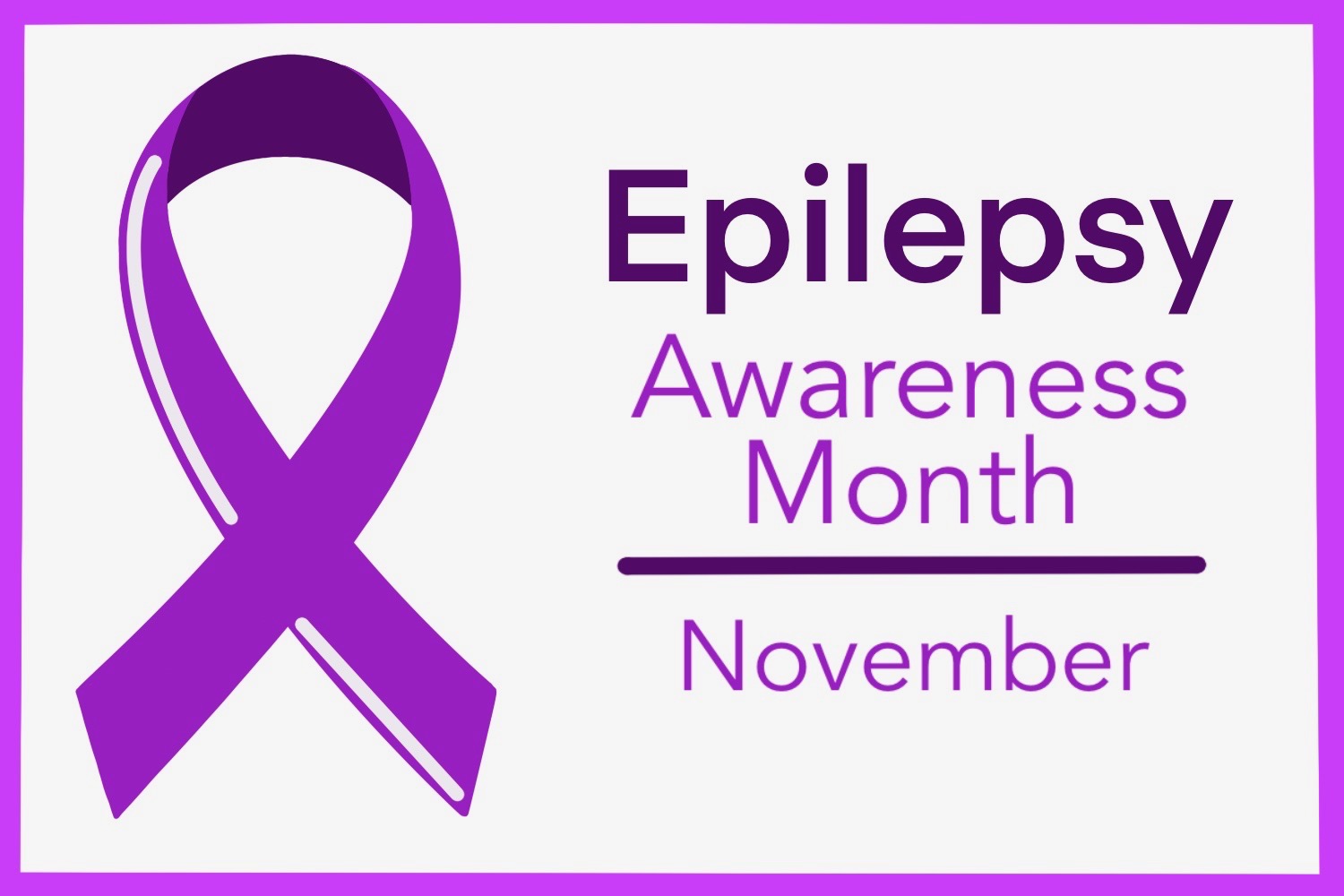
Epilepsy Awareness Month | Illustration by Kayli Thompson | The Wright State Guardian
November is Epilepsy Awareness Month, a condition that one-in-26 develop within their lifetime. Epilepsy is a neurological condition that causes unpredictable and repeated seizures.
While some diagnosed with epilepsy struggle with seizures the majority of their life, some are fortunate enough to find a treatment plan that limits or eliminates their seizures.
What is epilepsy
“Epilepsy occurs when changes in the brain cause it to be too excitable or irritable, causing the brain to send out abnormal signals,” said attending neurologist at the Stony Brook University School of Medicine Amit Shelat.
Symptoms and causes of epilepsy can vary widely from person to person. In many cases, epilepsy can be caused by a brain injury or an illness, but it can also be hereditary.
Seizures fall into two different categories: partial/focal and generalized.
“Partial seizures start in one part of the brain, but the abnormal activity may move to other parts of the brain. A person having a partial seizure may experience twitching throughout the body, have slurred, abnormal or unusual speech or feel tingling throughout one side of the body,” said social media specialist for the Minnesota Children’s Hospital Kaitlyn Kamleiter. “Generalized seizures involve simultaneous abnormal electrical activities all over the brain. There are three different types of generalized seizures: absence, tonic-clonic and myoclonic.”
Epilepsy awareness
The Epilepsy Awareness Foundation began to celebrate Epilepsy Awareness Month in 1969 in order to advocate for further research and funding for the illness, eventually choosing a lavender-colored ribbon as the condition’s symbol. In 2003, Congress officially declared November as Epilepsy Awareness Month.
“I found out I had it [epilepsy] when I had a UTI. I had a seizure and the doctors assumed it was a fever-induced seizure,” said Julia McMichael. “After the UTI was gone, I had another one and saw a neurologist who diagnosed me.”
Julia McMichael is a family-friend to a WSU student residing in Painesville, OH.
McMichael was diagnosed with epilepsy in April 2016 at the age of 15 before discovering she was pregnant that July, at age 16.
“It was really scary because I was having them while heavily pregnant. When Jo [her son] was first born I was really scared about being alone with him in case I had one,” said McMichael.
As of November of 2020, McMichael is now an STNA, a restaurant server and mother celebrating three and a half years seizure free.
“Pay attention to your body,” said McMichael on how others with epilepsy can try to prepare themselves for an oncoming seizure. “A lot of times, people have an aura before they have a seizure, a certain feeling or something. Knowing that feeling could prevent you from really getting hurt while having one and help you be able to get yourself into a safer position.”
To learn more on what to do if someone around you has a seizure, read survivor stories and learn how to contribute to Epilepsy Awareness Month, visit: https://www.epilepsy.com/make-difference/public-awareness/national-epilepsy-awareness-month
